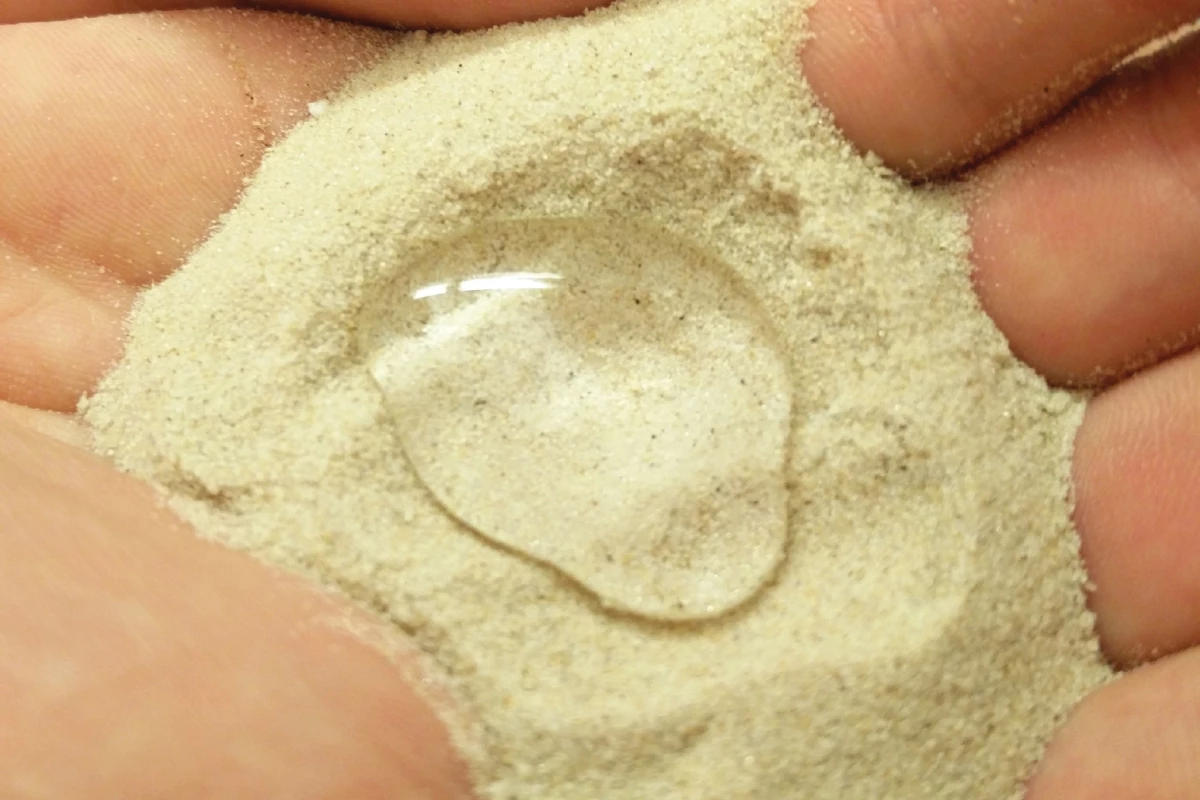Farmers will often place sheets of plastic on the ground along their crop rows, in order to help hold moisture in the soil. According to a new study, however, the use of wax-coated sand may be a cheaper and greener way to go.
Typically used in conjunction with buried irrigation tubing, plastic-sheet-type mulch does indeed reduce the amount of water that evaporates from the soil. Unfortunately, though, covering entire plots with new sheets of the material every year can get expensive. Additionally, small pieces of the plastic will break off and remain in the environment, while the rest of it typically just ends up in a landfill once the growing season is over.
Led by Assoc. Prof. Himanshu Mishra, a team at Saudi Arabia's King Abdullah University of Science and Technology (KAUST) is therefore exploring an alternative – silica sand coated with purified paraffin wax.
The scientists initially prepared the material by first dissolving the wax in hexane solvent, mixing sand into that mixture, then allowing the solvent to evaporate. Doing so left a 20-nanometer-thick layer of hydrophobic (water-repelling) wax on each grain of sand – it should be noted that the process has now been refined to the point that no solvents are required.
When the resulting Superhydrophobic Sand (SHS) was spread in a thin layer on a field in Saudi Arabia, it was found to reduce soil moisture loss by 56 to 78 percent.
Additionally, when the SHS was used over multiple growing seasons as a 5- to 10-mm-thick mulch for wheat, barley and tomato plants, those plants produced up to 73 percent more grain and fruit than a group of control plants grown in uncovered soil. What's more, the amount and diversity of beneficial soil microbes at the crucial root-soil interface appeared to be unaffected by the presence of the SHS.
Although paraffin wax isn't particularly eco-friendly in its regular form, Mishra told us that the purified "food-grade" wax utilized by his group is both non-toxic and biodegradable – so it shouldn't harm the environment, or accumulate within it.
"Depending on the wax coating thickness and environmental conditions, SHS degrades over time under microbial action at the soil-SHS interface," he said. "In our experiments […] SHS lost its water repellency within about nine months – this means that SHS grains lost their waxy coating. On tilling, they simply got incorporated into the sandy soil like a drop in the ocean. Therefore, under our environmental conditions, successive crop cycles with SHS do not cause wax accumulation."
In fact, this isn't the first time that coated sand has been put forth as an alternative to plastic-sheet mulch. In 2020, we heard about a study being conducted at the University of Nevada in Las Vegas, in which soybean oil was being used instead of wax.
Among other things, Mishra stated that as compared to that oil, his team's wax is considerably more hydrophobic – so less of the mulch should be required for a given moisture-retention effect – plus the process of coating the sand with it is less complex, and thus easier to scale up for wide use.
The research is described in a paper that was recently published in the journal ACS Agricultural Science & Technology.
Source: American Chemical Society




